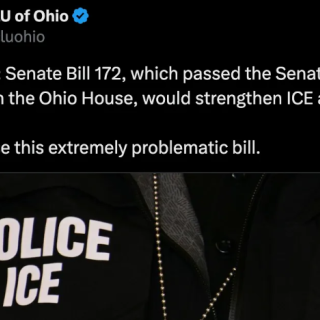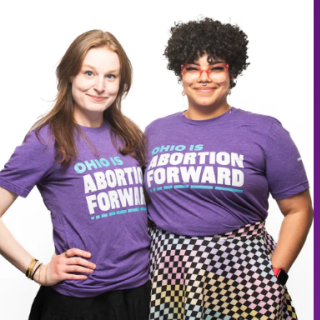Advertisement
To make our city government work for the benefit of everyone, Yes We Can Columbus has been advocating for campaign finance reform since 2016. Currently, candidates for Columbus Mayor, City Council, City Attorney, and City Auditor are permitted to receive unlimited campaign cash from wealthy individuals and corporations. Candidates favored by the rich can afford to pay for more air time, canvassing, campaign literature, and yard signs than candidates who depend on the smaller donations that ordinary citizens can afford.
The well-heeled candidates win, because they have more money to sway public opinion. After the election, their wealthy donors expect favors in return. And they get them.
An even playing field is essential for a healthy democracy, where working class people have a say in decisions that affect them. But the idea has had no traction with Mayor Ginther and the current City Council, who were elected under the current pay-to-play system.
Until just recently. On November 27, Will Petrik, a former City Council candidate and member of Yes We Can, was invited to participate in a meeting at City Hall to discuss campaign finance reform. “The meeting turned out to be not so much a discussion as an announcement,” Petrik said. “After months of hearing that campaign finance reform was a ‘non-starter’ in Columbus, suddenly reform was not only possible, it was imminent.”
Mayor Ginther held a press conference the next day to announce a new proposal for campaign finance reform that is based on the state limits set by the Republican-dominated Ohio legislature. In this plan, city candidates could receive up to $12,707.79 per year from each donor. In contrast, Cleveland sets the annual contribution limit at $5,000. In Cincinnati, the limit is $1,100.
At a December 4 public hearing with Columbus City Council, citizens expressed dismay that city leaders want to set the limits so high, and that Council President Shannon Hardin had set a December 10 date for Council to vote on the measure.
“I’m here today to urge City Council to delay the vote and establish reasonable campaign limits that will hold Council accountable to working people and not just wealthy corporations and developers,” said Andrew Lin of Columbus Socialist Alternative at the hearing.
“City Council has spent lots of time talking about housing, making minor changes to tax abatement requirements. But a City Council awash in thousands from corporate real estate developers is only capable of putting a band-aid on the problem. Today, countless working people are struggling to pay for housing and the basic necessities of life. While plenty of luxury apartments are being built in previously affordable neighborhoods, our City Council remains beholden to big developers who line their pockets with campaign money.”
City Council members have received large donations from the Columbus Apartment Association, Columbus Realty Investment, Central Ohio Realtors PAC, and Pizzuti PAC, Lin said. “Pizzuti received millions in tax abatements from City Council in recent years but has failed to deliver on job promises.”
“Developers in Easton don’t have to pay their taxes,” said Julia Allwein, who recently graduated from Columbus Alternative High School. “Meanwhile, you tell my classmates and I that there ‘aren’t enough resources’ to get the rats out of our school. I can’t afford to write a $12,707.79 check to you or your colleagues. Wealthy donors will always have a louder voice than working families in Columbus, and our schools will continue to pay the price.”
“$12,707.79 isn’t a limit — it’s a permission slip for wealthy donors to continue influencing city officials,” said Aaron Christopher, an OSU political science student and service worker. “This yearly limit will still allow nearly $51,000 to be spent per election cycle, an amount simply unattainable for the majority of Columbus residents, many of whom work for $8.30/hour.”
“Yes We Can has been circulating a survey to get some hard data to share with you tonight, and the results have been unambiguous,” said English teacher Nicole Butler. “Given choices ranging between $250 and $12,707.79, and out of 120 respondents so far, 95% of respondents expressed a preference for a limit between $250 and $3000.”
Councilmember participation in the hearing was less than enthusiastic. Shannon Hardin, Michael Stinziano, Elizabeth Brown, and Emmanuel Remy were present, but only Stinziano stayed for the full hearing.
After the hearing City Council decided to postpone the vote, probably also in response to an editorial from the Columbus Dispatch, which agreed with the high contribution limits, but noted that a vote on the measure in December was “way too soon. The perception of a rush job on ethics-related legislation would rob the mayor and council of the presumption of good faith.”
City Council plans to hold another public hearing on January 3.



